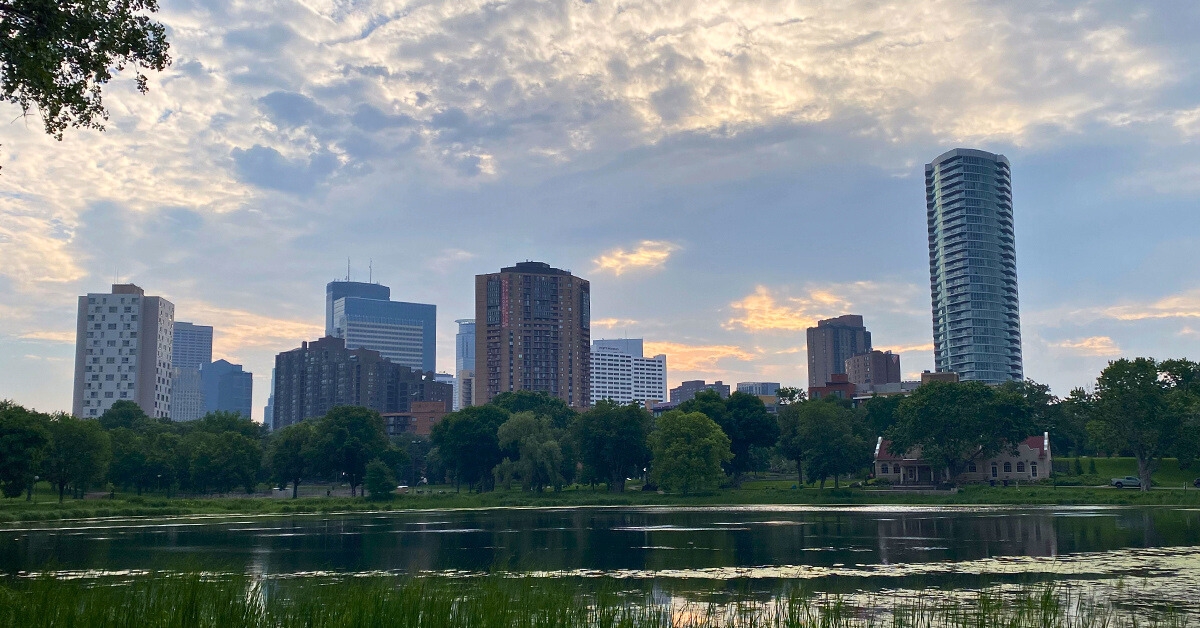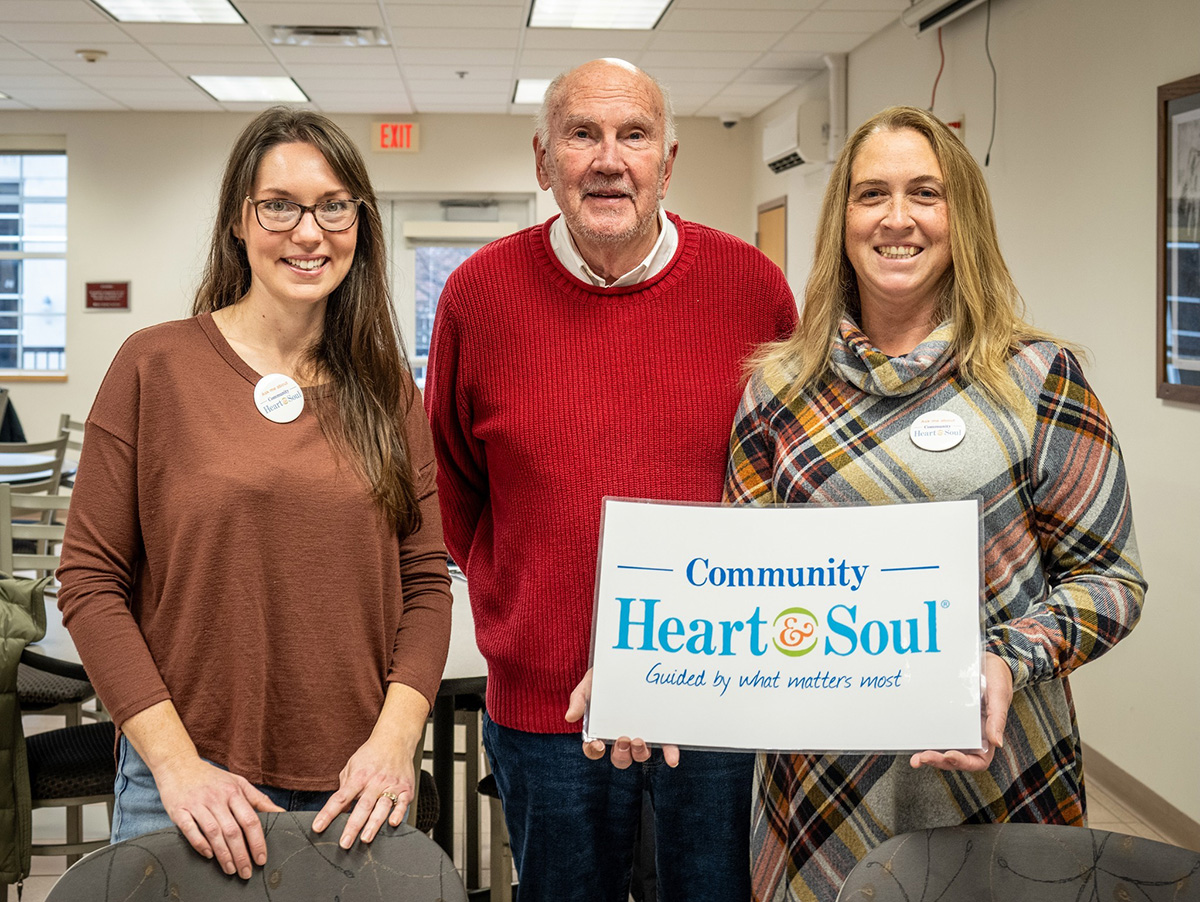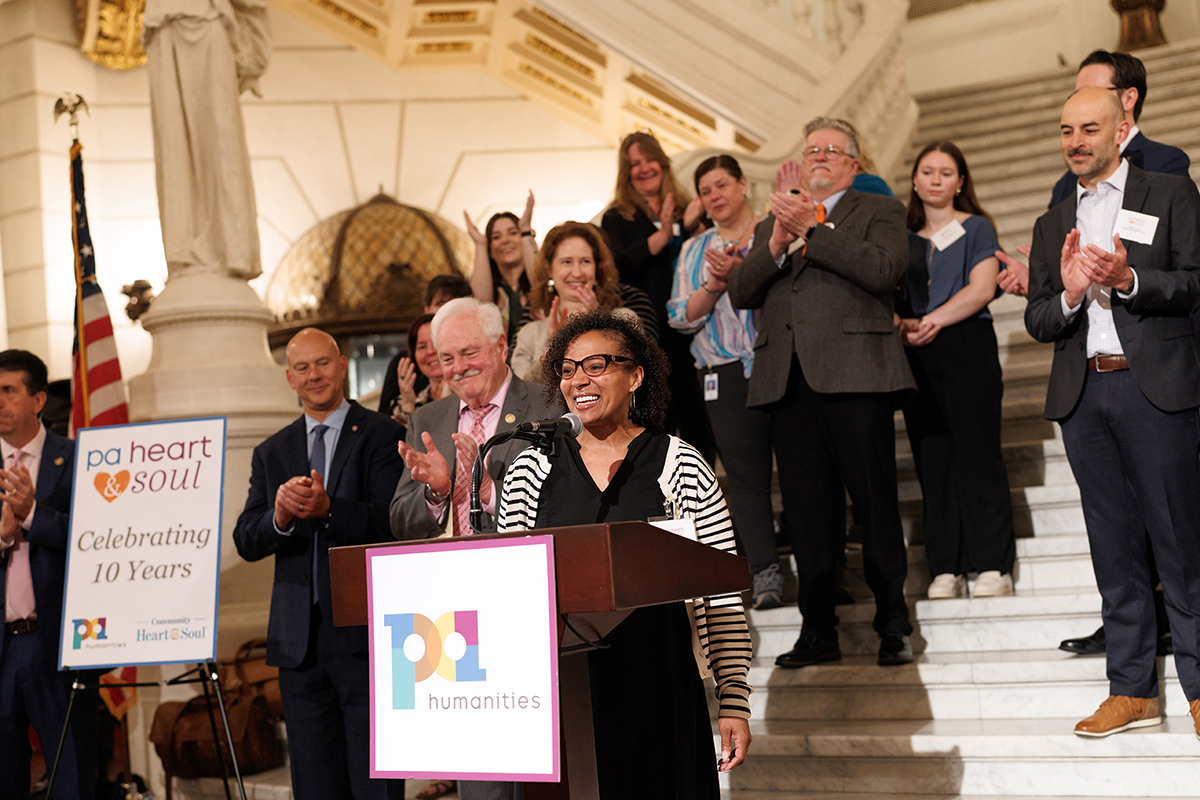A Dining-Room Meeting Begins A New Chapter In Town’s Story
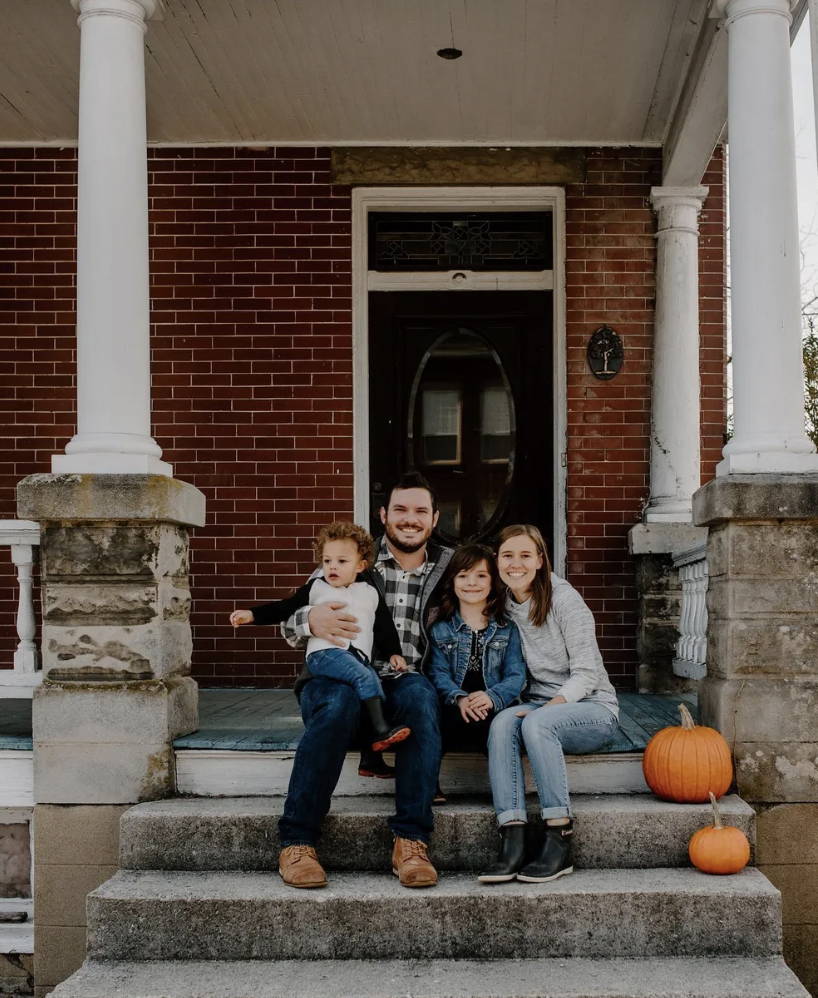
This article first appeared on the Our Towns Civic Foundation website on August 1, 2022, which you can see here.
As Isaac and Heidi Tucker saw it, there was no use in waiting for their town to improve itself. Instead, they took action, and are rallying renewal efforts in Dillsburg, Pennsylvania today.
In 2016, when Isaac and Heidi Tucker renovated their 19-century house in Dillsburg, Pennsylvania, a small town of some 2,500 people in the southeast part of the state, they made sure it would have a big dining room. It wasn’t just to throw parties for family and friends. The Tuckers imagined their dining room as a community gathering space.
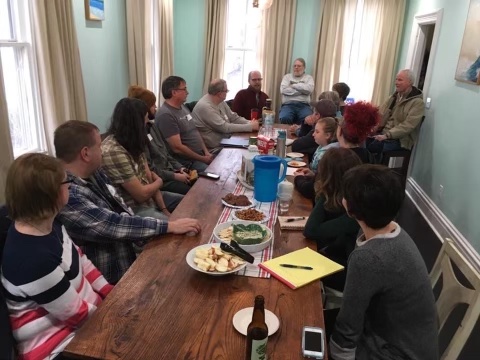
Two-and-a-half years after the renovations, the Tuckers opened their doors and filled the dining room with local leaders of a diverse range of backgrounds and interests. From real estate agents to pastors, the visitors were all there because they each wanted to make Dillsburg better. They were there because Isaac and Heidi invited them.
“We thought there’s no use waiting for our town to improve itself,” Isaac Tucker told me. “We can assemble ourselves as community members and brainstorm ways to make the town better.”
That dining-room meeting began a new chapter for Dillsburg, one in which individuals feel more empowered to make a difference with support from aligned town residents. And the Tuckers – Dillsburg natives and entrepreneurs who are involved in local government, founded the Downtown Dillsburg Initiative, and helped bring Community Heart & Soul® to their hometown – are at the forefront of that story.
Isaac and Heidi Tucker met in middle school in Dillsburg, dated in high school, and were married the summer before their senior year of college. After graduating from Messiah University, a small private college less than 10 miles north of the town, they decided at the height of the Great Recession in 2009 to venture out from southeast Pennsylvania, where they had lived their whole lives. The two moved to Franklin, Tennessee, where Isaac pursued a career in music.
But Franklin never felt like home. The Tuckers lived there for only seven months before they decided to move back to Dillsburg to be closer to family. Living somewhere else other than Dillsburg, however, gave the couple a sense of what their hometown could become.
A small city with a quaint downtown district just over 20 miles south of Nashville, Franklin had a different economic model than Heidi and Isaac were used to in Dillsburg. Sure, the town is also very much larger (80,675 to Dillsburg’s 2,588), but it wasn’t just that. Franklin had an ethos of focusing locally that struck a chord with the Tuckers.
“Community members were taking the money they made, mainly in the music industry, and reinvesting it locally, supporting small businesses, hosting street fairs, and renovating historic buildings,” Heidi told me. “That’s when it clicked. Dillsburg could be cool too if we all shopped locally, invested here, and created a community mindset of working, living, and playing here.”
So the Tuckers returned to home on a mission to spark what they experienced in Franklin back in Dillsburg. “We asked ourselves, how do we do that in Dillsburg? We want to show this town that we can have our own venues and restaurants and attractions,” Isaac told me. “Dillsburg already has a DIY culture: we have skilled chefs, musicians, and artists here. Now we have to figure out how we bring all those talents together and make them available to others.”
Today, Isaac is the director of business development at Katapult Engineering, a software development and consulting firm founded in Dillsburg in 1991, and he’s also a member of the local borough council. Katapult, where Isaac is also a shareholder, not only offers the local community high-paying tech industry jobs to foster economic growth, but also provides internships to help offer engineering career pathways to local youth, as we’ve written about previously.
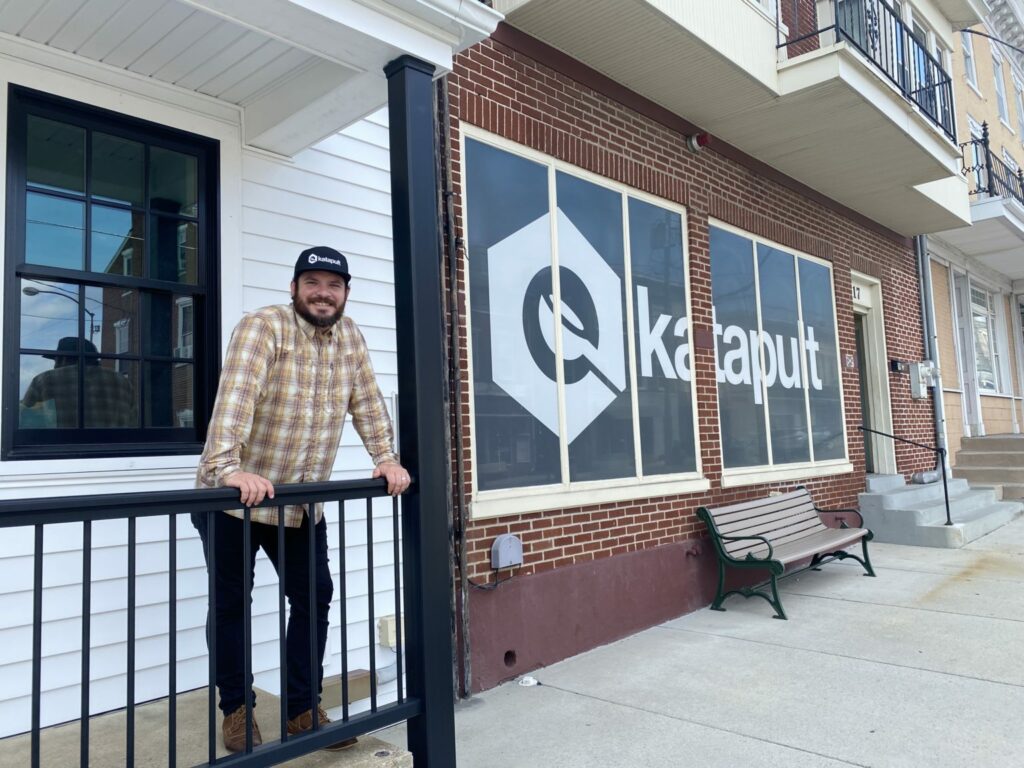
Heidi is preparing to expand her business, Tucker and Co. Bakery, from an online and pop-up business into a brick-and-mortar café. She’s also a vendor at the local farmer’s market and former president of its board, and is working to build “third spaces” for Dillsburg residents to gather, be inspired, and relax both through her business and work on the local farmer’s market.
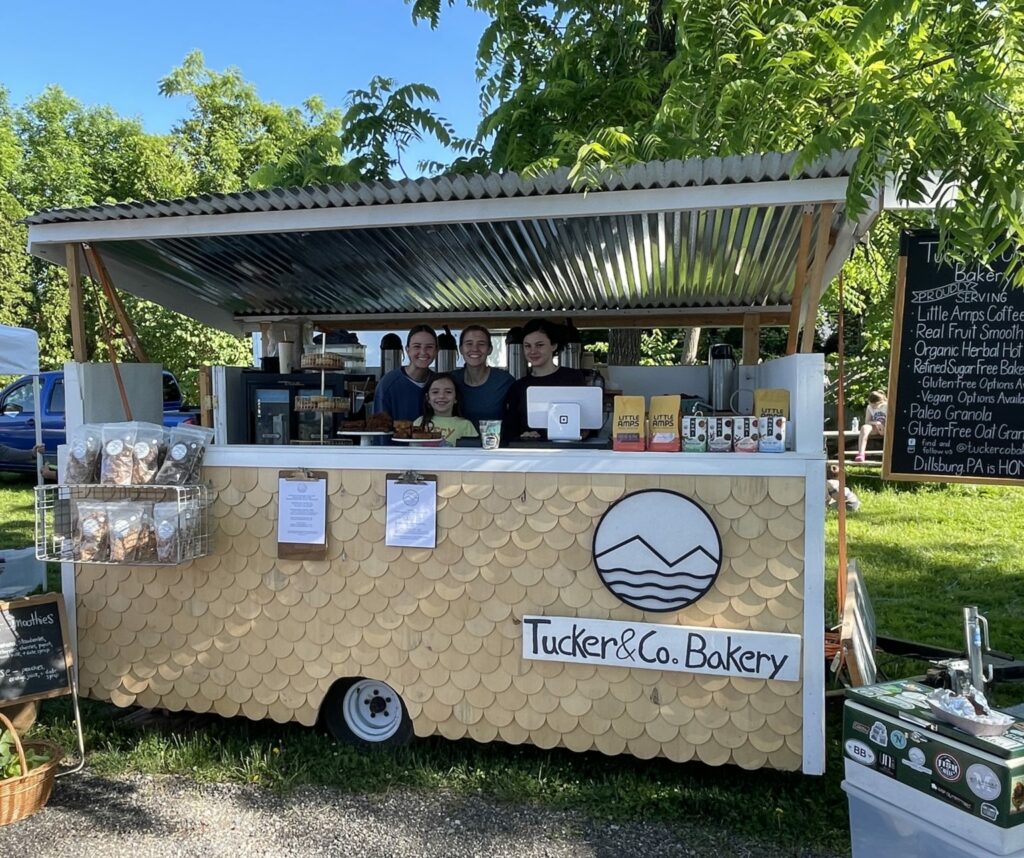
She is working to expand a granola company that she currently operates out of the back of their house. Her vision, she told me, is to build a brand that celebrates healthy, locally sourced food that supports active lifestyles. If successful, the granola business would generate revenue that she can invest back into Dillsburg.
Isaac and Heidi are also parents of two young children, ages 8 and 3. From borough council, to scaling up businesses, to the kids, it is hard to imagine that they get much sleep.
But back in 2015, when they were each 27 years old, the Tuckers were restless. Knowing they could not reinvigorate Dillsburg alone, they first gathered people in a Facebook group. That morphed into a local committee to support positive community change, becoming the Downtown Dillsburg Initiative, which they founded.
The Downtown Initiative then was adopted as a subcommittee within the Dillsburg Arts Council. Leaders within the Arts Council, previously known as the Dillsburg Arts and Revitalization Council, were looking for a way to restart their community engagement efforts. The Downtown Initiative was a great fit.
The idea was to empower individuals that have a great idea and help them run with it. We didn’t want more monthly meetings or another nonprofit; we just want a group that takes action.
—Heidi Tucker
That, in turn, led to the Downtown Initiative adopting the Community Heart & Soul® process as one of its first projects to channel entrepreneurship to community-identified needs right before the Covid-19 pandemic struck. (A resident-driven community development process, CH&S is a partner and supporter of Our Towns reports.)
The Tuckers hadn’t heard of Heart & Soul until their friends Dave Maher and Katie Hess suggested it. Dave and Katie work in conservation and historical preservation in nearby Carlisle, and had engaged with the Greater Carlisle Area’s Heart & Soul process.
“We had a great subsection of the town engaged with the Downtown Initiative, and tons of momentum. Turns out, Heart & Soul was exactly what we were already building, just way better,” Isaac told me. Rather than having cities start from scratch, Community Heart & Soul offered templates to help the Downtown Initiative bring community voices into the decision-making conversations about Dillsburg’s future.
Today, Dillsburg’s Heart & Soul process is moving from the information-gathering phase to Phase 3 of 4, which involves planning for action. The team has gathered information from these interviews and produced its set of Community Heart & Soul Statements. They will begin soliciting feedback on it this fall.
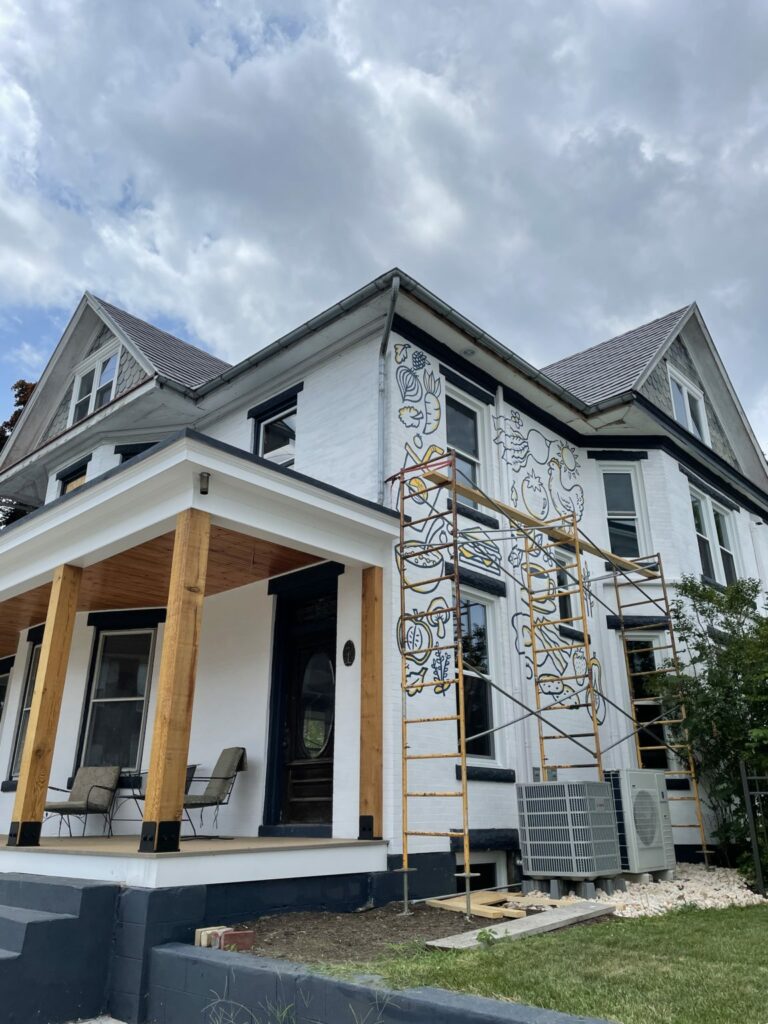
The Tuckers’ story is proof that change does not happen on its own: it takes doers taking action, and it takes individuals to be the change. Sometimes that action requires painstaking effort.
“The truth is that we’re on the edge of burnout,” Isaac told me. “People ask us, ‘How do you do it all?’ We’re constantly working, and sometimes we barely make it.”
But the Tuckers told me that they gain energy and renewed motivation from the efforts of those around them. “We are often reminded that this is a good place, this is somewhere we want to invest in—that we can do this.”


